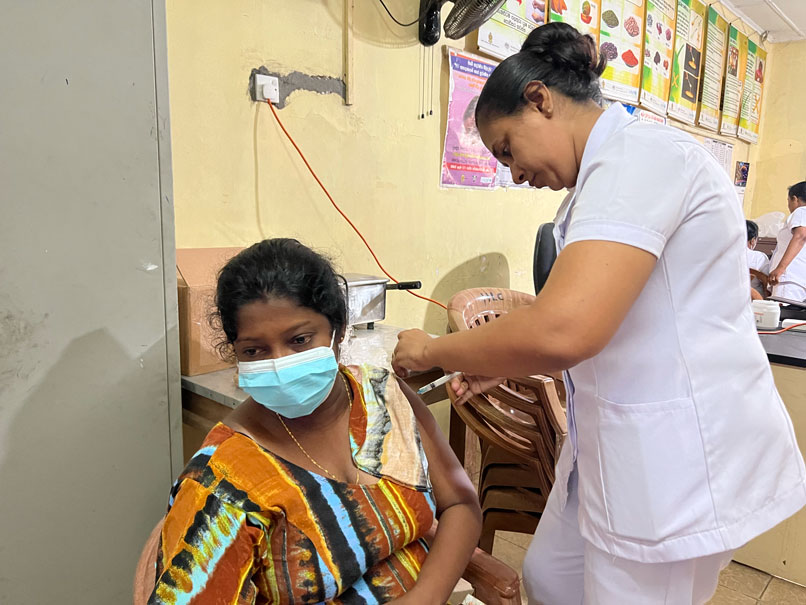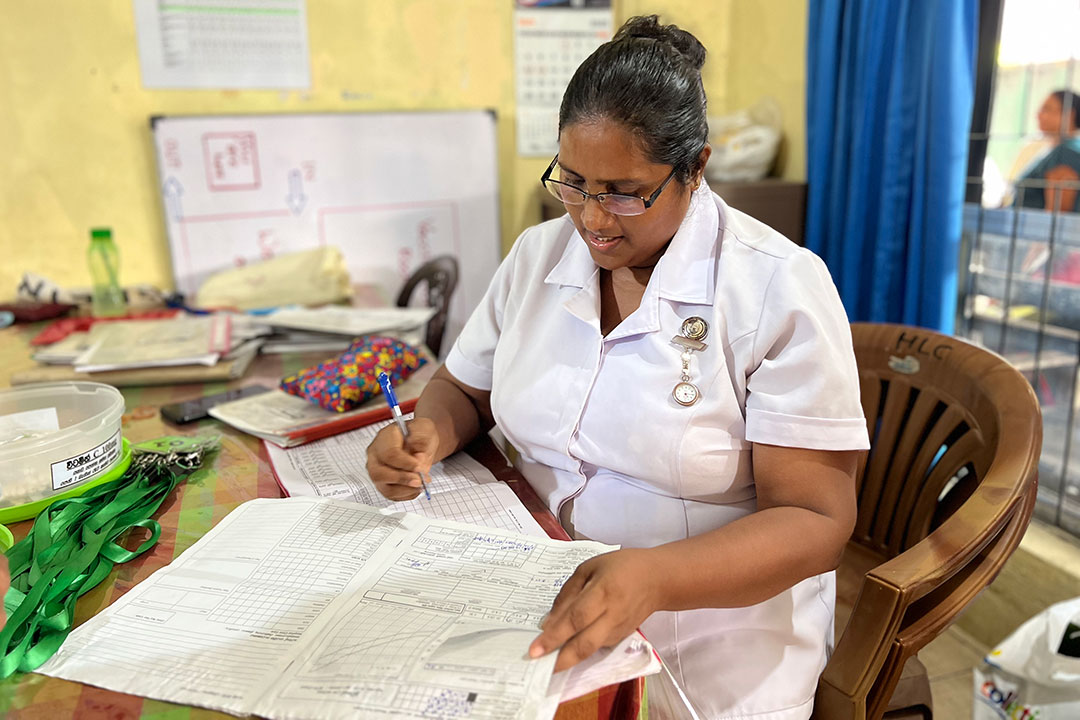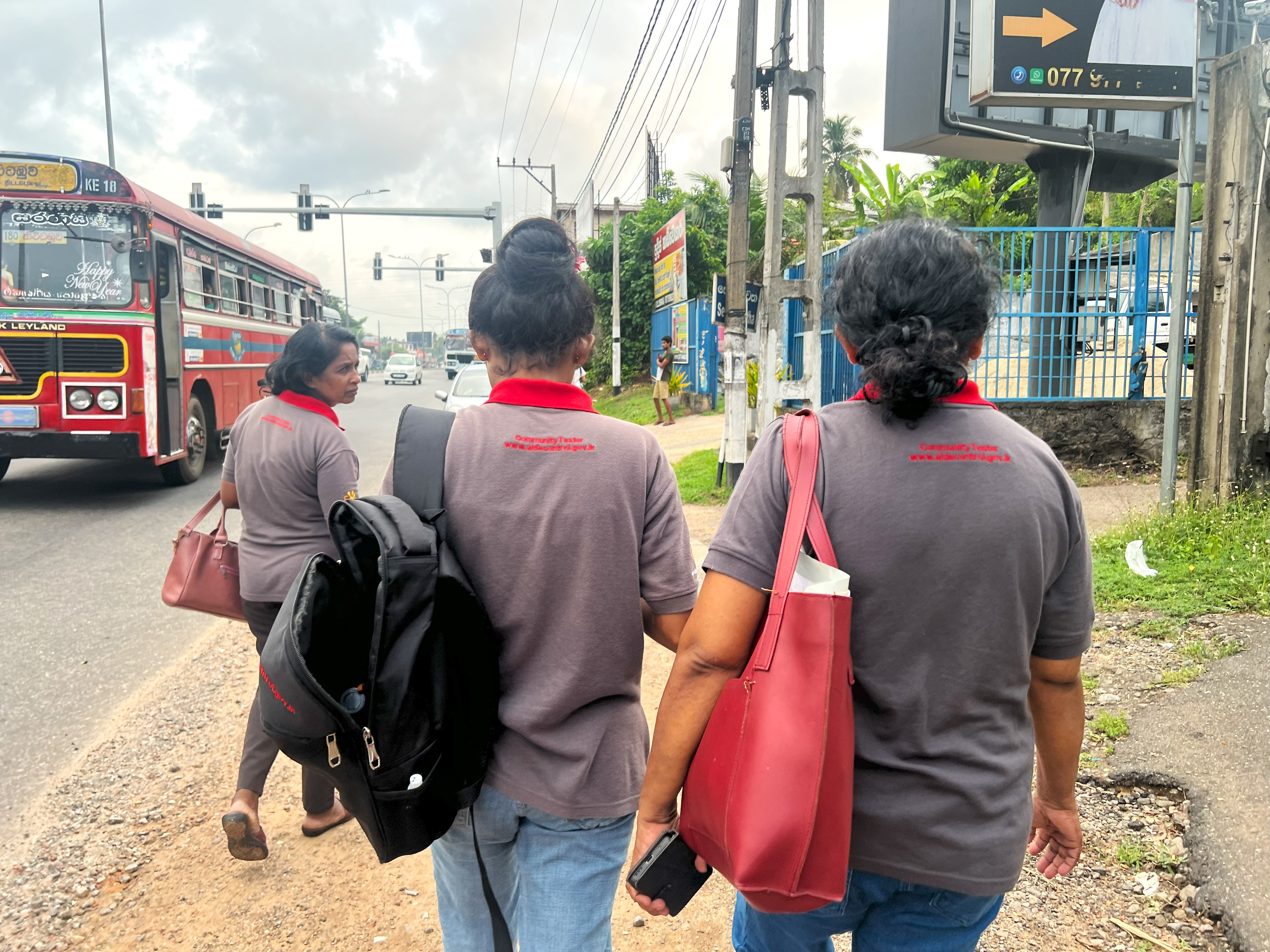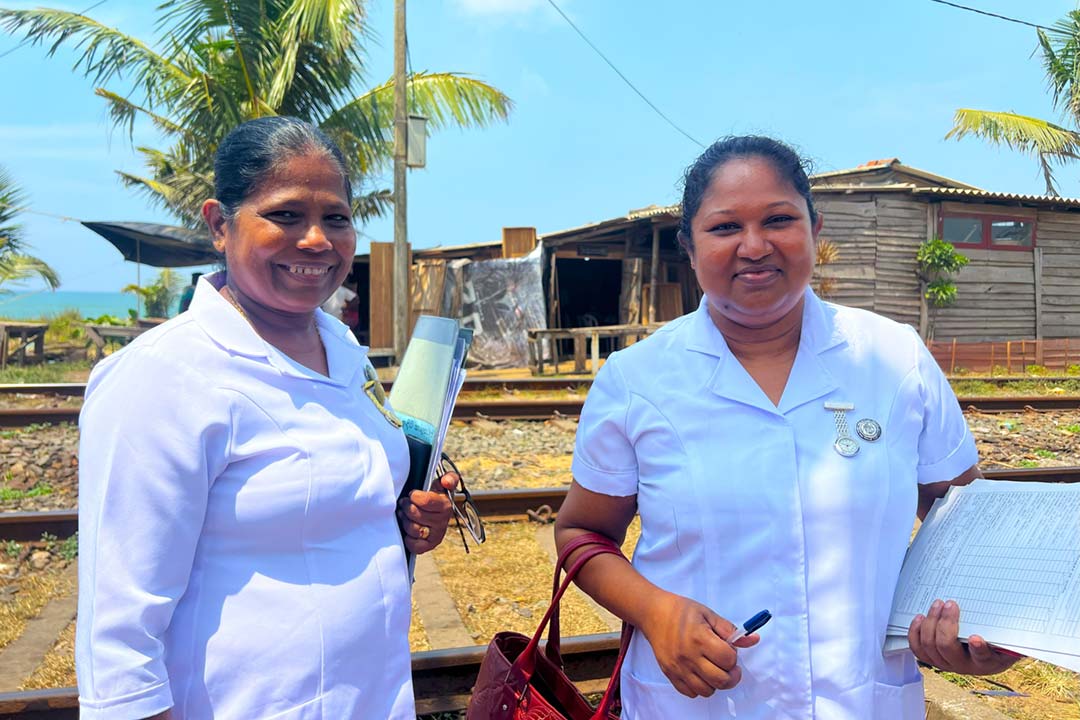A jab of hope: kindness fuels Sri Lanka’s HPV vaccination success
Sri Lanka’s HPV vaccination programme is well on its way to squashing the second-commonest cancer among the country’s women.
- 2 June 2025
- 5 min read
- by Aanya Wipulasena

It is a bright Friday morning. A group of sixth-grade female students and their parents gather in front of a classroom, temporary converted into a vaccination station at a school in Battaramulla, about eight kilometres from Sri Lanka’s capital, Colombo.
“Do you know why you are here today?” Dr Indika Ellawala, Medical Officer of Health, asks, smiling at the gathered group.
They do, but Dr Ellawala takes the time to explain what the programme is in detail, encouraging anyone with questions to ask him.
“We are giving you the HPV [human papillomavirus] vaccine today,” he says. “This is administered to girls who have completed 12 years of age, or in grade six, in Sri Lanka. We give this to prevent cervical cancer. The main reason for cervical cancer is the virus known as HPV.
“If we eliminate the HPV virus there will be a 90% reduction in cervical cancer in the future. It is the number two cancer (among females) still in Sri Lanka, and a considerable number succumb to it annually,” Dr Ellawala goes on to explain.
He says that two doses of the vaccine will be given six months apart and are administered at schools on fixed dates. He takes time to answer each question raised by the mothers. A public health inspector also takes a few minutes to provide further information to the parents and their daughters.
Sleeves rolled up
Parents are reassured, and the students ready for their first jab. No one hesitates to take it.
Inside the makeshift station, the work is methodical and efficient. A kindly medical officer speaks to each child to inquire of her medical history and allergies, and explain what should be done in case of an allergic reaction after the vaccination is taken, which she assures is rare and there is nothing for the student to be afraid of.
The student is then directed to a desk where a midwife and a health assistant are seated. They duly record the student’s information.
“I have been in service for 36 years, and I have observed that parents are very keen to get their children vaccinated. They show maximum interest in their child’s health and trust us,” Public Health Midwife, W. N. D. P. Nandalatha, said, adding that she is doing her work with utmost happiness. “This team is like a big family,” she says, smiling.
Sri Lanka’s HPV vaccination programme, implemented through the National Immunization Program (NIP), began in 2017.
Dr Nimal Gamagedara, Consultant Medical Epidemiologist at the National Epidemiology Unit, Ministry of Health, says the programme is going smoothly.
“Gavi supported this vaccination part. We (Sri Lanka) are getting HPV vaccines on Gavi price. That means the price is less than the normal market price,” Dr Gamagedara says.
He says with Gavi’s support Sri Lanka administered the first and second doses of HPV vaccines successfully, with over 90% coverage across the island, in 2018, 2019 and 2020.
“But in 2022, 2023 and early part of 2024 there was a global supply issue because the vaccines were not available globally. We received HPV vaccines in April 2024 and since then we are carrying out vaccinations for all the cohorts who have not received vaccines,” says Dr Gamagedara.
“So now, throughout 2024 and first quarter of 2025 we have been able to reach the first dose coverage for 2023 and 2024 cohorts, again more than 90%,” he says, adding, “We have distributed all HPV vaccines to all MoH offices in the country in all districts. They are having enough vaccine stocks in district levels now to complete second dose for 2023 and 2024 cohorts. They have already started first dose for 2025 cohort.”
Sharp scratch
In the school in Battaramulla, this can be observed. One after the other, students take their vaccines, many bravely and some not as much.
Tekla Nilmini, 50, is accompanying her daughter, Vidushi Nethmini. The mother of three says she was eager to get her daughter vaccinated.
“I had to undergo two surgeries to remove two cervical ulcers. Doctors warned me that this could turn cancerous and now I am very careful. I was very scared when I received my diagnosis. So, when my daughter’s class teacher informed us about the vaccination day, I told her that she should take it,” Nilmini said.
She praised the health workers for their work. “They explained everything to us in detail. As parents, we have no worries about anything because we know that the health workers will look after our children. They tend to each child with thoughtfulness and kindness,” she said.
She also said that she is relieved that the vaccination is provided free of charge to all students, as most parents would not be able to afford it.
Her daughter, Nethmini, squeezes her eyes shut as Public Health Inspector, Amith Kumara, prepares the jab. Behind her Dr Ellawala speaks with another student who fears needles.
“There’s nothing to be scared. We are here for you,” Kumara assures Nethmini. Soon it is over, and Nethmini smiles. In six months, she’ll get her second dose – and be safe, for life.








